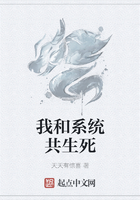In Edgewood Center events moved slowly.
In Carl Crawford's home dullness reigned supreme. He had been the life of the house, and his absence, though welcome to his stepmother, was seriously felt by his father, who day by day became thinner and weaker, while his step grew listless and his face seldom brightened with a smile. He was anxious to have Carl at home again, and the desire became so strong that he finally broached the subject.
"My dear," he said one day at the breakfast table, "I have been thinking of Carl considerably of late."
"Indeed!" said Mrs. Crawford, coldly.
"I think I should like to have him at home once more."
Mrs. Crawford smiled ominously.
"He is better off where he is," she said, softly.
"But he is my only son, and I never see him," pleaded her husband.
"You know very well, Dr. Crawford," rejoined his wife, "that your son only made trouble in the house while he was here."
"Yet it seems hard that he should be driven from his father's home, and forced to take refuge among strangers."
"I don't know what you mean by his being driven from home," said Mrs. Crawford, tossing her head. "He made himself disagreeable, and, not being able to have his own way, he took French leave."
"The house seems very lonely without him," went on Dr. Crawford, who was too wise to get into an argument with his wife.
"It certainly is more quiet. As for company, Peter is still here, and would at any time stay with you."
Peter did not relish this suggestion, and did not indorse it.
"I should not care to confine him to the house," said Dr. Crawford, as his glance rested on the plain and by no means agreeable face of his stepson.
"I suppose I need not speak of myself.
You know that you can always call upon me."
If Dr. Crawford had been warmly attached to his second wife, this proposal would have cheered him, but the time had gone by when he found any pleasure in her society. There was a feeling of almost repulsion which he tried to conceal, and he was obliged to acknowledge to himself that the presence of his wife gave him rather uneasiness than comfort.
"Carl is very well off where he is," resumed Mrs. Crawford. "He is filling a business position, humble, perhaps, but still one that gives him his living and keeps him out of mischief.
Let well enough alone, doctor, and don't interrupt his plans."
"I--I may be foolish," said the doctor, hesitating, "but I have not been feeling as well as usual lately, and if anything should happen to me while Carl was absent I should die very unhappy."
Mrs. Crawford regarded her husband with uneasiness.
"Do you mean that you think you are in any danger?" she asked.
"I don't know. I am not an old man, but, on the other hand, I am an invalid. My father died when he was only a year older than I am at present."
Mrs. Crawford drew out her handkerchief, and proceeded to wipe her tearless eyes.
"You distress me beyond measure by your words, my dear husband. How can I think of your death without emotion? What should I do without you?"
"My dear, you must expect to survive me.
You are younger than I, and much stronger."
"Besides," and Mrs. Crawford made an artful pause, "I hardly like to mention it, but Peter and I are poor, and by your death might be left to the cold mercies of the world."
"Surely I would not fail to provide for you."
Mrs. Crawford shook her head.
"I am sure of your kind intentions, my husband," she said, "but they will not avail unless you provide for me in your will."
"Yes, it's only right that I should do so. As soon as I feel equal to the effort I will draw up a will."
"I hope you will, for I should not care to be dependent on Carl, who does not like me. I hope you will not think me mercenary, but to Peter and myself this is of vital importance."
"No, I don't misjudge you. I ought to have thought of it before."















